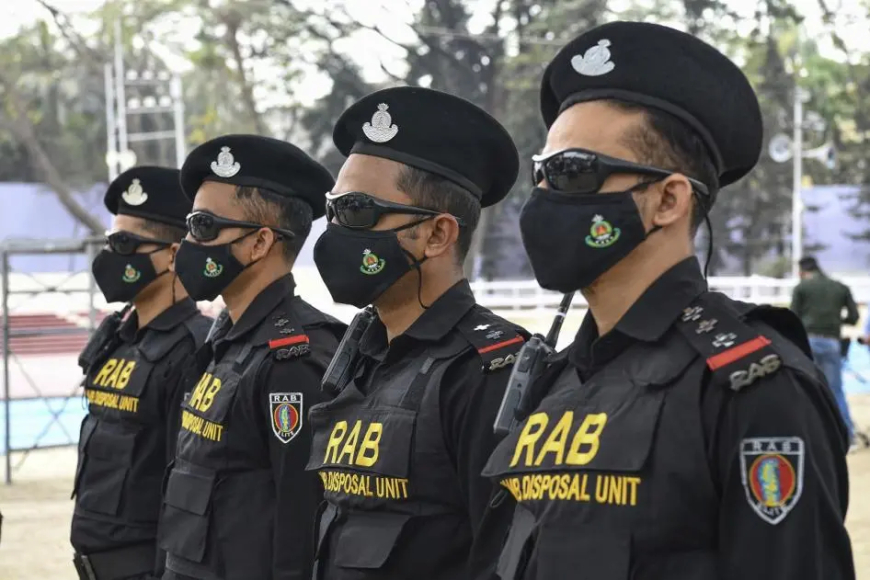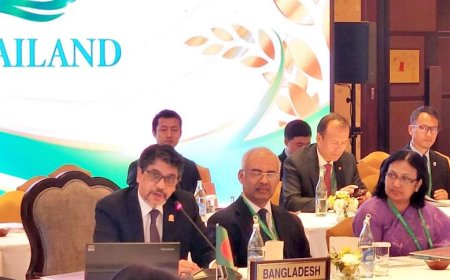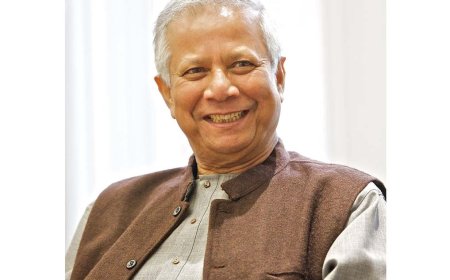Why is there an effort to shape a 'new' narrative about RAB?
Why is there an effort to shape a 'new' narrative about RAB?

On December 21, Prothom Alo published an article online titled "Now is the right time to abolish RAB." The article argues that there is growing public consensus to dismantle the Rapid Action Battalion (RAB), and it calls on the interim government to act swiftly on this decision.
Just days after the publication of the article, an incident emerged suggesting that a 'strategic campaign' might be underway to prevent the abolition of RAB. Some influential figures within the interim government, who gained prominence for various reasons, are allegedly participating in this campaign. These individuals appear to be attempting to create a new narrative that seeks to 'reframe' RAB’s image.
The context for this discussion is sensitive: the fall of Sheikh Hasina's authoritarian regime on August 5, following a student uprising, and the subsequent trial of Hasina, former and current ministers, MPs, and law enforcement officials for crimes against humanity committed during the uprising. As such, the role of the International Crimes Tribunal (ICT) has become increasingly significant. On December 23, the ICT's chief prosecutor, Tajul Islam, attended an event at RAB headquarters as a "discussor" and later posted on Facebook about RAB. His post outlined RAB's evolution, stating that it began as a successful force under the BNP-led government but later became associated with violence and oppression under the Awami League.
Tajul Islam's remarks raised questions. He described RAB as a force that initially inspired public hope but later became a source of fear and hatred due to its involvement in human rights violations. His post also suggested that efforts were underway to reshape RAB by removing previous officers. However, this narrative omits some key facts: during the Awami League’s tenure (2009–2024), RAB’s involvement in extrajudicial killings, disappearances, and other human rights violations reached unprecedented levels. These issues were first raised when RAB was established under the four-party coalition government in 2004, a period during which domestic and international human rights organizations, including Human Rights Watch, voiced concerns about the force. The organization even called for RAB’s dissolution in 2009, when the Awami League came to power.
Tajul Islam, who is a Supreme Court lawyer and politically active (having served as the joint convener of the AB Party before becoming the chief prosecutor), is likely aware of these facts. Therefore, questions arise: Why did he present such a fragmented view of RAB’s history in his post? Is he attempting to rehabilitate RAB’s image?
The controversy surrounding RAB is compounded by the ongoing accusations of its involvement in disappearances, murders, and human rights abuses during Sheikh Hasina's regime. Recently, victims, including Limon Hossain, who lost his leg in a RAB shooting, have filed complaints with the ICT, demanding RAB’s abolition. The Commission of Inquiry into the Disappearances has also recommended the force’s dissolution, along with judicial action against those involved in the disappearances.
As the chief prosecutor, Tajul Islam is effectively the primary legal advocate for these victims. Yet, his participation in RAB events and his Facebook campaign to defend the force raise concerns of a conflict of interest. This situation has prompted further questions about whether his actions might influence the ongoing demand for RAB's abolition.
The article in Prothom Alo suggests that there is broad public support for the dissolution of RAB, citing the political opposition of the BNP, the demands of families of the disappeared, and the recommendations from the Commission of Inquiry. In light of this, efforts to restore RAB’s image seem to have a deliberate and strategic aim, one that could delay or complicate the decision to abolish the force—something the public does not want.
What's Your Reaction?





















































































